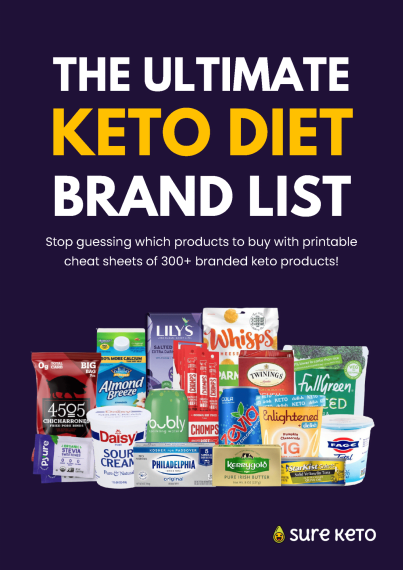Dirty Keto vs Healthy Keto - What's the Difference?
Dirty keto is a variant of the popular low-carb, high-fat diet known as the ketogenic diet.
The main difference between dirty keto and traditional keto is the focus on convenience and quick fixes rather than whole, nutrient-dense foods.
Healthy Keto
On a traditional keto diet, the goal is to enter a state of ketosis by eating high amounts of fat, moderate amounts of protein, and very few carbs.
To do this, followers of the diet typically eat whole, unprocessed foods like meats, seafood, eggs, non-starchy vegetables, nuts, and seeds.
The focus is on getting the right balance of nutrients to support the body's needs while in ketosis.
Dirty Keto
Dirty keto, on the other hand, takes a more relaxed approach to the diet.
Instead of emphasizing whole, nutrient-dense foods, dirty keto focuses on quick and convenient options that are high in fat and low in carbs.
This often includes processed foods like fast food burgers without the bun, bacon wrapped around everything, and other processed snacks like pork rinds.
Some examples of dirty keto foods include:
- Processed meats like bacon, sausage, and deli meat
- Fast food burgers without the bun
- Fried chicken without the breading
- Diet soda with artificial sweeteners
- Pork rinds fried with vegetable oils
- Cheese chips and other processed snack foods
- Sugar-free ice cream and other low-carb desserts
- Low-carb condiments made with vegetable oils and artificial preservatives
All of these foods contain one or more of the of the following unhealthy low-carb ingredients:
- Artificial sweeteners: Includes sucralose, aspartame, and acesulfame potassium. While artificial sweeteners may be low in carbs and calories, they can actually contribute to cravings and may even have negative effects on your health.
- Highly refined oils: Includes highly refined and processed oils such as canola, corn, and soybean oil. These oils can contain trans fats and other unhealthy additives.
- Unhealthy food additives: This includes artificial preservatives, flavorings, and other additives that can be harmful to your health.
While these foods and ingredients may be low in carbs and fit within the guidelines of the ketogenic diet, they are often lacking in nutrients and can have negative impacts on overall health.
In contrast, a traditional keto diet emphasizes whole, nutrient-dense foods that provide the body with the nutrients it needs to function optimally.
An Easy Way to Avoid Dirty Keto
Do you want to know the best keto-friendly bacon brands without nitrites?
How about keto-friendly ice cream without artificial sweeteners and harmful food additives?
Or keto chips made with clean keto-friendly ingredients?
If your answer is yes, then you might me be interested to know more about:
The Ultimate Keto Brand List
- Hack your keto shopping! Know the top 3 keto products for over 140 food categories. (A total of 420+ product recommendations)
- Avoid false marketing of 'keto' products - all ratings are based on net carbs, fats, and ingredients. No marketing labels, just nutrition facts.
- Know what other keto dieters like you are buying. All products included have good Amazon reviews.
Conclusion
It's important to note that dirty keto is not a sustainable or healthy way to follow the ketogenic diet.
While it may provide some short-term weight loss results, it is not a balanced or nourishing way to eat in the long term.
Instead of focusing on quick fixes and convenient options, it's better to focus on whole, nutrient-dense foods and a balanced approach to eating.
